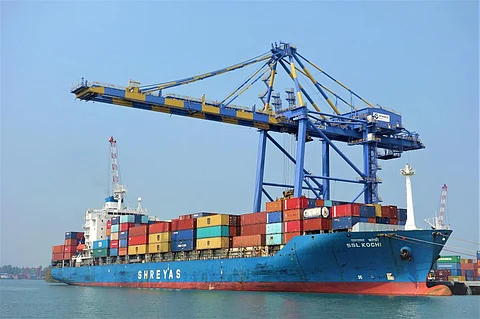

On June 20, 2023, in an open letter to the central government, over 130 organisations and individuals including parliamentarians, trade experts and civil society leaders, expressed concerns at the lack of transparency and non-inclusive consultation processes in the country’s free trade agreement (FTA) negotiations with several countries, including the United Kingdom, the European Union, United States of America, Canada and Israel.
The letter comes as the fifth round of negotiations between India and the EU is being held in Brussels. Negotiations between India and the 27-nation bloc resumed last year in June, after a gap of over eight years on the proposed agreements on trade and investments.
While the EU is India’s third-largest trading partner, accounting for 88 billion euros worth of trade in goods in 2021 or 10.8 per cent of total Indian trade, India is the EU’s 10th largest trading partner, accounting for 2.1 per cent of EU total trade in goods.
“This is symptomatic of the overall phenomenon of how FTA agreements are done with other countries. We know very little about it,” said Venkatesh Nayak, member of Citizen’s FTA Watch, a country-wide group of civil society representatives and activists.
Nayak also filed an RTI application seeking information on the policies adopted and reports of stakeholder consultations in the ongoing India-EU FTA negotiations on May 12, 2023, after Union Commerce Minister Piyush Goyal met with the European Free Trade Association’s delegation in April 2023.
However, the information was denied on the grounds of being ‘sensitive in nature’, among other reasons.
Interestingly, the EU has presented a proposal for increased public access to information about matters covered by FTA.
The EU has also published their reports of all four rounds of India-EU FTA talks held so far and also the textual proposals they have shared with the Indian government on more than 20 topics, such as trade in goods and services, investment, intellectual property, sustainable food systems and government procurement.
Replies to one of the RTI questions also said that stakeholder consultations have been done with ministries / government departments / organisations and industry associations.
But industry is not the only stakeholder, said Nayak. There are intellectual property rights issues involved, there are stakeholders like farmer associations, worker unions, environmental rights groups, which also need to be consulted, he noted, adding:
Moreover, one of the proposals under FTA relates to government procurement and it will cover state governments also. So, we want to ask the Centre as to what extent it has consulted state governments, shared proposals with them and sought their comments.
Ironically, in 2020, Union External Affairs Minister S Jaishankar had also commented that the FTAs that India entered into over the years have not been able to serve the country’s economy well in terms of building its capacities, adding that all such pacts are not the same.
Looking at the possible fallout of a non-transparent process, the open letter said, “This non-consultative and exclusionary process signals a disregard for the questions of human rights, social justice and environmental impacts that wider stakeholder involvement would put on the table”.
There is a mechanism for joint review under FTA, wherein both countries set up a mechanism for reviewing the impact of FTA on their respective economies. “We will wait for that joint review to happen,” said Nayak.
Some of the prominent signatories to the open letter included Rajya Sabha MP Jawhar Sircar, former Chief Information Commissioner Shailesh Gandhi, former Ambassador Madhu Bhaduri, Medha Patkar from the Narmada Bachao Andolan, Annie Raja from the National Federation of Indian Women, social activist Teesta Setalvad, General Secretary of the All India Kisan Sabha Vijoo Krishnan, Nikhil Dey from Mazdoor Kisan Shakti Sangathan, Leo Saldanha from the Environment Support Group, feminist economist Devaki Jain, among others.